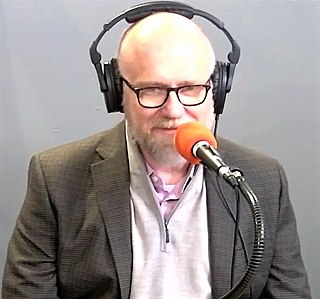A Quote by Saadi
Whoever interrupts the conversation of others to make a display of his fund of knowledge, makes notorious his own stock of ignorance.
Related Quotes
The first thing the reasonable man must do is to be content with a very little knowledge and a very great deal of ignorance. The second thing he must do is to make the utmost possible use of the knowledge he has and not waste his energy crying for the moon. The third thing he must do is try and see clearly where his knowledge ends and his ignorance begins.
To judge sins is the business of one who is sinless, but who is sinless except God? Who ever thinks about the multitude of his own sins in his heart never wants to make the sins of others a topic of conversation. To judge a man who has gone astray is a sign of pride, and God resists the proud. On the other hand, one who every hour prepares himself to give answer for his own sins will not quickly lift up his head to examine the mistakes of others.
WISDOM IS dependent upon knowledge. Where there is complete ignorance there can be no wisdom, no knowledge of the right thing to do. Man’s knowledge is comparatively limited and so his wisdom must be small, unless he can connect his mind with a knowledge greater than his own and draw from it, by inspiration, the wisdom that his own limitations deny him. Only God knows all truth; therefore only God can have Real wisdom or know the right thing to do at all times, and man can receive wisdom from God. Wisdom is obtained by reading the mind of God.
A person is not a democrat thanks to his ignorance of literature and the arts, nor an elitist because he or she has cultivated them. The possession of knowledge makes for unjust power over others only if used for that very purpose: a physician or lawyer or clergyman can exploit or humiliate others, or he can be a humanitarian and a benefactor. In any case, it is absurd to conjure up behind anybody who exploits his educated status the existence of an "elite" scheming to oppress the rest of us.
Therefore only through education does one come to be dissatisfied with his own knowledge, and only through teaching others does one come to realize the uncomfortable inadequacy of his knowledge. Being dissatisfied with his own knowledge, one then realizes that the trouble lies with himself, and realizing the uncomfortable inadequacy of his knowledger.
No matter how vast your knowledge or how modest, it is your own mind that has to acquire it. It is only with your own knowledge that you can deal. It is only your own knowledge that you can claim to possess or ask others to consider. Your mind is your only judge of truth - and if others dissent from your verdict, reality is the court of final appeal. Nothing but a man's mind can perform that complex, delicate, crucial process of identification which is thinking. Nothing can direct the process but his own judgment. Nothing can direct his judgment but his moral integrity.
Genius in the poet, like the nomad of Arabia, ever a wanderer, still ever makes a home where the well or the palm-tree invites it to pitch the tent. Perpetually passing out of himself and his own positive circumstantial condition of being into other hearts and into other conditions, the poet obtains his knowledge of human life by transporting his own life into the lives of others.
The Socratic maxim that the recognition of our ignorance is the beginning of wisdom has profound significance for our understanding of society. Most of the advantages of social life, especially in the more advanced forms that we call "civilization" rest on the fact that the individual benefits from more knowledge than he is aware of. It might be said that civilization begins when the individual in the pursuit of his ends can make use of more knowledge than he has himself acquired and when he can transcend the boundaries of his ignorance by profiting from knowledge he does not himself possess.
[Heraclitus] did not require humans or their sort of knowledge, since everything into which one may inquire he despises [as being] in contrast [to his own] inward-turning wisdom. [To him] all learning from others is a sign of nonwisdom, because the wise man focuses his vision on his own intelligence.







































